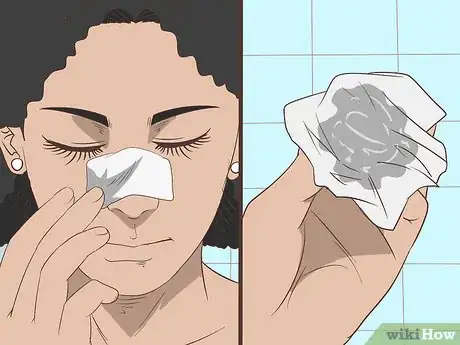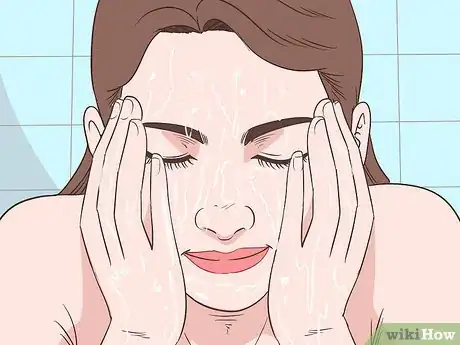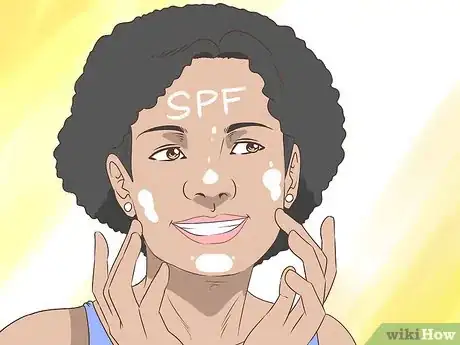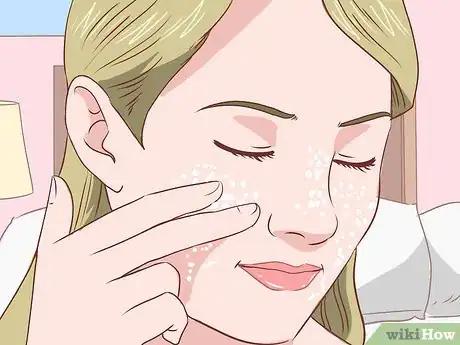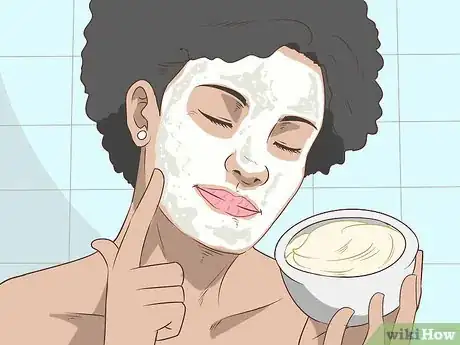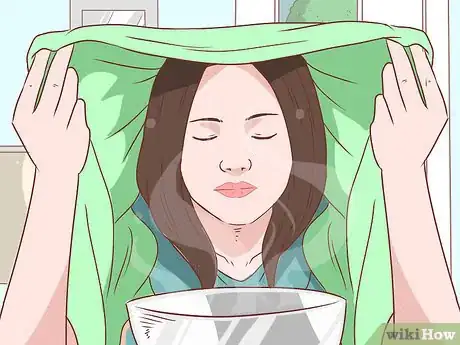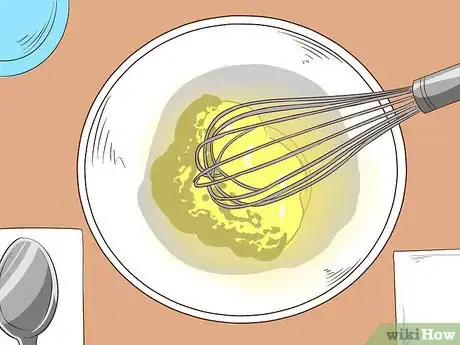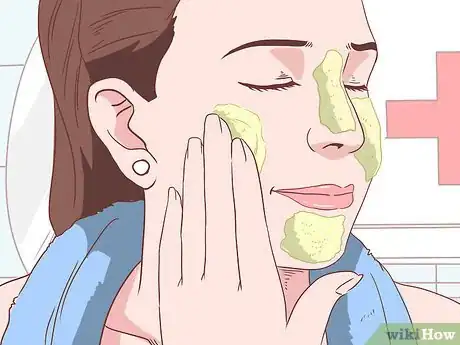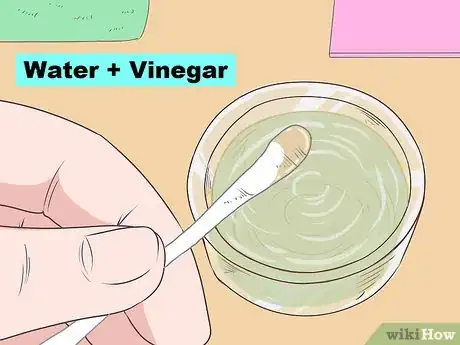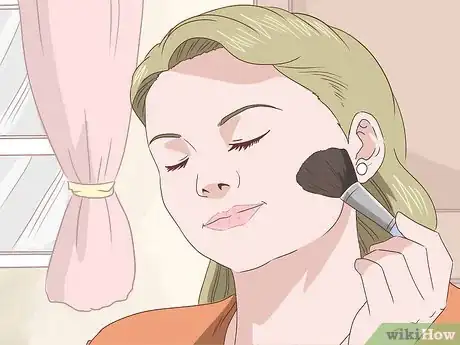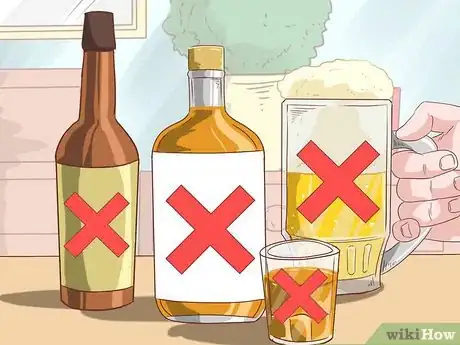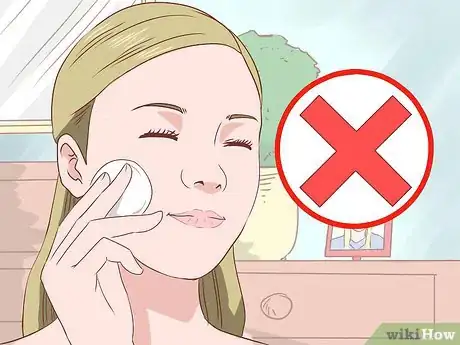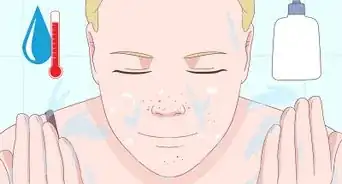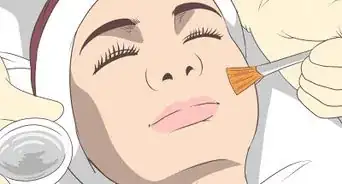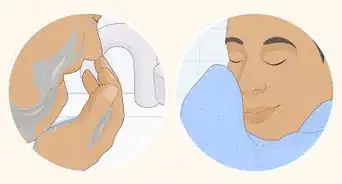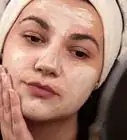This article was co-authored by Diana Yerkes. Diana Yerkes is a Skincare Professional and the Lead Esthetician at Rescue Spa in New York City, New York. With over 15 years of experience, Diana helps others with their skin care needs by incorporating natural and high-performing products and treatments into their routines while providing nutrition insights and educating clients on better skin care habits. Diana is a member of the Associated Skin Care Professionals (ASCP) and holds certifications from the Wellness for Cancer and Look Good Feel Better programs. She received her esthetics education from the Aveda Institute, the International Dermal Institute, and the Biologique Research Academy.
This article has been viewed 186,689 times.
An oily nose can be an annoyance and also may lead to issues like acne. Luckily, there are many ways you can treat an oily nose at home. Commercial products can help reduce oil on or near your nose. Natural methods, like steam treatments, can also reduce oils. If you're worried about a reoccurrence, small adjustments to your diet and makeup routine may help.
Steps
Treating Your Skin with Commercial Products
-
1Remove oil with blotting papers. Blotting papers are sold at most drugstores and cosmetic stores. They're an easy method to quickly remove oil from your nose. Simply add a small touch of translucent powder to the papers. Gently dab the papers against your nose to remove excess oil.[1]
-
2Wash with a gentle cleanser. A gentle water-soluble facial cleanser is an excellent way to remove oil from all over your face, including your nose. If oily skin is a problem, pick up a basic cleanser at a drug store. Wash your face in the morning and before bed.
- Some people have negative reactions to over-the-counter products. If you notice any redness or skin irritation after trying a cleanser, switch to a different product.
Advertisement -
3Wear sunblock. Use a mineral-based sunblock in place of your morning moisturizer. Apply it all over your face, including on your nose. A solid sunblock helps prevent oil from building up in your face and also protects your skin from the sun.[2]
- Look for a sunblock containing zinc, titanium dioxide, or denatured alcohol.
EXPERT TIPDiana Yerkes is a Skincare Professional and the Lead Esthetician at Rescue Spa in New York City, New York. With over 15 years of experience, Diana helps others with their skin care needs by incorporating natural and high-performing products and treatments into their routines while providing nutrition insights and educating clients on better skin care habits. Diana is a member of the Associated Skin Care Professionals (ASCP) and holds certifications from the Wellness for Cancer and Look Good Feel Better programs. She received her esthetics education from the Aveda Institute, the International Dermal Institute, and the Biologique Research Academy.Skincare Professional
 Diana Yerkes
Diana Yerkes
Skincare ProfessionalPowder sunscreen is great for people with oily skin. Diana Yerkes, Lead Esthetician at Rescue Spa NYC, says: "Powder sunscreen is easy to apply and it's great for protecting your skin from sun damage and sun exposure. In addition, the powder will absorb any extra oil on your face. It's great for re-applying, too, since you won't have to layer cream products on your skin."
-
4Use an exfoliating skin cleanser. Most drug stores and department stores sell exfoliating cleansers. These are cleansers with a rough texture you rub into the skin to help remove loose skin cells. If you exfoliate your nose, and the rest of your face, regularly, this can help prevent clogged pores that can cause oiliness.[3]
- Exfoliate only once a week. Too much exfoliating can cause skin damage.
-
5Apply a face mask. Purchase a clay or salicylic acid mask online or at a beauty salon. Apply the mask as directed. These masks can prevent oil buildup in the skin, resulting in a less oily nose.[4]
- Follow the directions on your mask to apply. Different masks are applied differently.
- As with any product, there is always a risk of a negative reaction. If you notice problems, like a rash or skin irritation, after using a mask, pick a different product.
Using Natural Methods
-
1Cleanse your face with steam. Steam can help unclog pores and therefore reduce oil in the nose. Wash your face first and then remove any makeup. Heat a covered pot of water on the stove on medium heat until it starts producing steam. With a towel wrapped around your head, open the pot and lean over it. Let your skin absorb some of the steam. Spend 10 minutes soaking up the steam.[5]
- Some people prefer to add dashes of things like peppermint or chamomile tea, as this may add some extra pore cleansing power.
-
2Apply lemon. Some people find lemon helps remove dirt from the nose. To use a lemon, mix three drops of lemon juice with enough sugar to form a paste. Apply this solution to a cotton pad and then rub it on your nose. Do this three times a day to see if you notice a reduction in oil.[6]
-
3Use ground almond. Grind a single almond into small fragments using a rolling pin or food processor. Mix in a small amount of honey and then apply the almond to your nose. Let it rest for 15 minutes before washing it away.[7]
-
4Try vinegar. Mix a solution of equal parts water and vinegar. Then, dab a cotton swab in the solution. Press the cotton swab to your nose for five minutes. Then, let the solution sit on for 15 minutes before washing it off.[8]
Preventing Oil Buildup
-
1Use less makeup. Makeup can clog pores and make an oily nose more likely. If you frequently experience an oily nose, avoid using a heavy amount of makeup on or near your nose. Use only a light layer of foundation or concealer near your nose, if you use any at all.[9]
-
2Adjust your diet. Overindulgence in alcohol may contribute to oily skin, so stick to only one or two drinks a night. Also, some people find spicy food makes skin oilier, so try to cut back on your consumption of that as well.[10]
-
3Avoid heavy face creams at night. If you use a face cream or moisturizer overnight, this can clog pores and make your nose oilier. Try switching to a lotion over cream. The light nature of a lotion may cause fewer problems related to oil.[11]
Community Q&A
-
QuestionWhat are blackheads?
 Community AnswerBlackheads are small bumps that may appear on the oily areas of your face as a result of clogged pores. Each blackhead is a plug of sebum (the oil that your pores produce naturally) that darkens when exposed to the air.
Community AnswerBlackheads are small bumps that may appear on the oily areas of your face as a result of clogged pores. Each blackhead is a plug of sebum (the oil that your pores produce naturally) that darkens when exposed to the air. -
QuestionWill steam open a zit to get the bacteria out?
 Community AnswerYes. However, you will probably get better results if you use a hot cloth instead.
Community AnswerYes. However, you will probably get better results if you use a hot cloth instead. -
QuestionCan I use makeup even though I am young?
 Community AnswerIf your parents/guardians agree, yes. Make sure you clean your face and remove all the makeup before bed. If you're young, use as little makeup as possible.
Community AnswerIf your parents/guardians agree, yes. Make sure you clean your face and remove all the makeup before bed. If you're young, use as little makeup as possible.
References
- ↑ http://www.allure.com/gallery/shine-control
- ↑ http://www.allure.com/gallery/shine-control
- ↑ http://www.allure.com/gallery/shine-control
- ↑ http://www.allure.com/gallery/shine-control
- ↑ http://naturalbeautytips.co/get-rid-of-clogged-pores-nose-face-chin/
- ↑ http://www.homeremedyfind.com/9-natural-ways-to-get-rid-of-oily-nose/
- ↑ http://www.homeremedyfind.com/9-natural-ways-to-get-rid-of-oily-nose/
- ↑ https://listaka.com/7-effective-home-remedies-for-oily-nose/
- ↑ http://www.allure.com/gallery/shine-control
About This Article
If you have an oily nose, try dabbing up the oil by using blotting papers throughout the day. For long-term results, consider using a gentle, water-soluble facial cleanser in the mornings and evenings. You should also try to wear sunblock whenever you go outside, since it can prevent oil buildup in addition to protecting your skin from sun damage. To deal with clogged pores, try using an exfoliating skin cleanser with a rough texture once a week, or apply a face mask with clay or salicylic acid. Alternatively, mix together a little lemon juice and sugar, then apply it to your nose using a cotton pad. For more advice, like how to prevent an oily nose with healthy lifestyle changes, scroll down!
